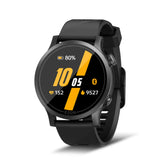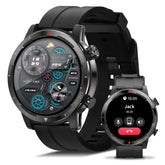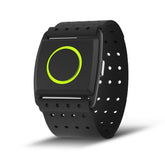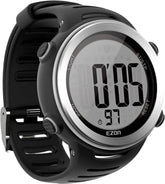Marathon Training: A Comprehensive Plan with Tech Support
Preparing for a marathon is an exciting yet challenging journey that requires careful planning, dedication, and the right tools. From training schedules to nutrition advice and injury prevention strategies, a well-rounded approach can make all the difference. In this article, we’ll provide a comprehensive marathon training plan and highlight how modern technology, including a marathon training watch, can support your efforts with features like long battery life and GPS tracking.
Creating a Marathon Training Schedule
A structured training schedule is vital for gradually building your endurance and preparing your body for the demands of a marathon. Here’s a basic training outline for a 16-week marathon training plan:
Weeks 1-4: Building a Base
- Goal: Establish a running routine and build base mileage.
-
Weekly Schedule:
- Monday: Rest or cross-training (cycling, swimming)
- Tuesday: Short run (3-5 miles)
- Wednesday: Cross-training (30-45 minutes)
- Thursday: Short run (4-6 miles)
- Friday: Rest
- Saturday: Long run (6-8 miles)
- Sunday: Recovery run (2-3 miles)
Weeks 5-8: Increasing Mileage
- Goal: Gradually increase weekly mileage and introduce speed work.
-
Weekly Schedule:
- Monday: Rest or light cross-training
- Tuesday: Tempo run (5-7 miles at a challenging pace)
- Wednesday: Cross-training (45-60 minutes)
- Thursday: Short run (5-7 miles)
- Friday: Rest
- Saturday: Long run (10-12 miles)
- Sunday: Recovery run (3-4 miles)
Weeks 9-12: Peak Training
- Goal: Build endurance and prepare for race conditions.
-
Weekly Schedule:
- Monday: Rest or cross-training
- Tuesday: Speed intervals (6-8 miles with intervals)
- Wednesday: Cross-training (60 minutes)
- Thursday: Short run (6-8 miles)
- Friday: Rest
- Saturday: Long run (14-18 miles)
- Sunday: Recovery run (4-5 miles)
Weeks 13-16: Tapering
- Goal: Reduce mileage to allow your body to recover before race day.
-
Weekly Schedule:
- Monday: Rest
- Tuesday: Short run (4-6 miles)
- Wednesday: Cross-training (30-45 minutes)
- Thursday: Short run (3-5 miles)
- Friday: Rest
- Saturday: Long run (8-10 miles in week 13, then taper down)
- Sunday: Recovery run (2-3 miles)
Nutrition for Marathon Training
Proper nutrition is a crucial part of your marathon training. Here are some guidelines to help fuel your runs:
- Carbohydrates: Focus on complex carbohydrates (whole grains, fruits, vegetables) to provide sustained energy.
- Proteins: Include lean proteins (chicken, fish, legumes) for muscle repair and recovery.
- Hydration: Stay hydrated before, during, and after runs. Consider electrolyte drinks for longer runs.
- Fueling During Runs: For runs longer than 60 minutes, consider energy gels, chews, or bananas to keep your energy levels up.
Injury Prevention Strategies
Injury can derail your marathon training, so it’s essential to take preventive measures:
- Listen to Your Body: Pay attention to any signs of pain or discomfort and adjust your training accordingly.
- Incorporate Strength Training: Strengthen key muscle groups to support your running and reduce injury risk.
- Stretch and Foam Roll: Regular stretching and foam rolling can improve flexibility and aid in recovery.
- Rest Days: Ensure you have adequate rest days to allow your body to recover.
The Role of Technology in Marathon Training
Modern technology can significantly enhance your marathon training experience. Here are some features to look for in a marathon training watch:
1. GPS Tracking
A best GPS sports watch will provide accurate distance tracking and route mapping, helping you plan your runs and monitor your progress.
2. Long Battery Life
Choosing a longest battery sports watch ensures that your device won’t run out of power during long training sessions or on race day. Look for watches that can last for several hours in GPS mode.
3. Heart Rate Monitoring
Real-time heart rate monitoring helps you stay within your target heart rate zones, allowing you to optimize your training intensity and recovery.
4. Performance Metrics
Many advanced watches provide valuable insights such as VO2 max estimates, training load, and recovery time, helping you make informed decisions about your training.
5. Smart Notifications
Stay connected during your runs with smart notifications for calls, messages, and other alerts, allowing you to focus on your training without distractions.
Conclusion
Training for a marathon requires dedication, strategic planning, and the right tools. By following a structured training schedule, prioritizing nutrition, and implementing injury prevention strategies, you’ll be well on your way to achieving your marathon goals. Incorporating a marathon training watch with features like GPS tracking, long battery life, and performance metrics will provide invaluable support throughout your journey. Embrace the challenge, stay committed, and prepare to cross that finish line with confidence!









